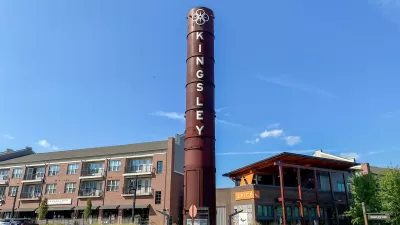As more and more people live on this planet, the pressure to build smart cities that feature environmentally sustainable infrastructure will become immense. Planners will be challenged to do more with less. Here's a discussion of this complex issue.
The global population, according to the Pew Research Center, is projected to grow by 38% from 2010 to 2050. This increase means an additional 2.7 billion people in the world, many of whom will be living in Africa and other developing countries. Additionally, India will soon surpass China as the most populous. It is also projected that by the year 2050, 70% of the population will reside in urban communities.
This population growth presents an interesting and unique problem for urban planners. As more and more people live on this planet, the pressure to build smart cities that feature environmentally sustainable infrastructure will become immense. The challenge facing planners will be to find a way to do more with less. In other words, what decisions will need to be made going forward to create livable environments for more per people per square foot as population densities grow while maintaining a proper balance between human and environmental needs?
Read the full article for a more in-depth look at this question.
FULL STORY: Meeting the Challenge of Sustainable Infrastructure

Alabama: Trump Terminates Settlements for Black Communities Harmed By Raw Sewage
Trump deemed the landmark civil rights agreement “illegal DEI and environmental justice policy.”

Planetizen Federal Action Tracker
A weekly monitor of how Trump’s orders and actions are impacting planners and planning in America.

The 120 Year Old Tiny Home Villages That Sheltered San Francisco’s Earthquake Refugees
More than a century ago, San Francisco mobilized to house thousands of residents displaced by the 1906 earthquake. Could their strategy offer a model for the present?

In Both Crashes and Crime, Public Transportation is Far Safer than Driving
Contrary to popular assumptions, public transportation has far lower crash and crime rates than automobile travel. For safer communities, improve and encourage transit travel.

Report: Zoning Reforms Should Complement Nashville’s Ambitious Transit Plan
Without reform, restrictive zoning codes will limit the impact of the city’s planned transit expansion and could exclude some of the residents who depend on transit the most.

Judge Orders Release of Frozen IRA, IIJA Funding
The decision is a victory for environmental groups who charged that freezing funds for critical infrastructure and disaster response programs caused “real and irreparable harm” to communities.
Urban Design for Planners 1: Software Tools
This six-course series explores essential urban design concepts using open source software and equips planners with the tools they need to participate fully in the urban design process.
Planning for Universal Design
Learn the tools for implementing Universal Design in planning regulations.
Clanton & Associates, Inc.
Jessamine County Fiscal Court
Institute for Housing and Urban Development Studies (IHS)
City of Grandview
Harvard GSD Executive Education
Toledo-Lucas County Plan Commissions
Salt Lake City
NYU Wagner Graduate School of Public Service





























